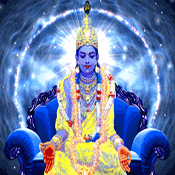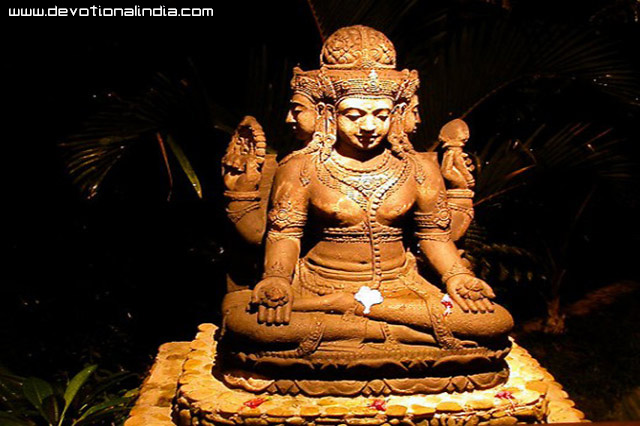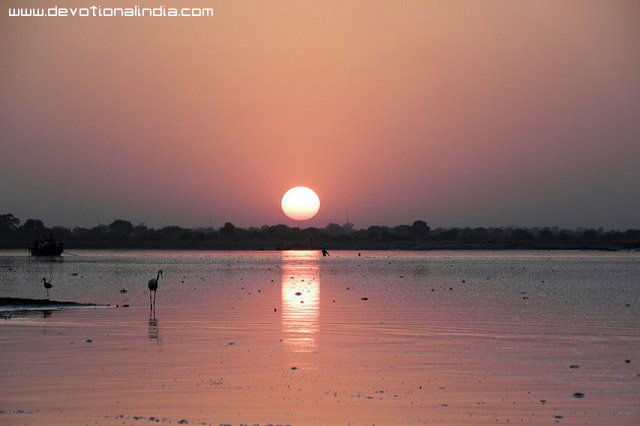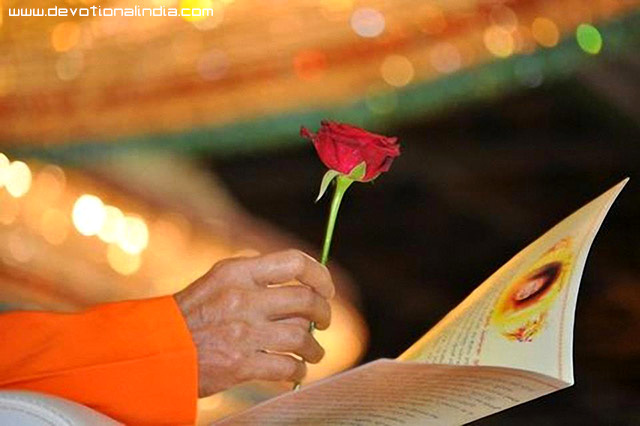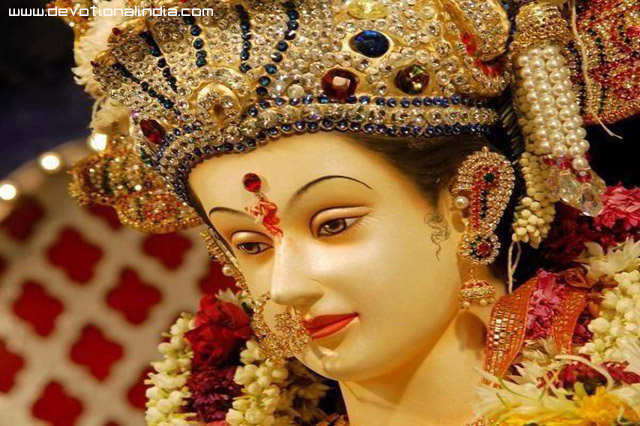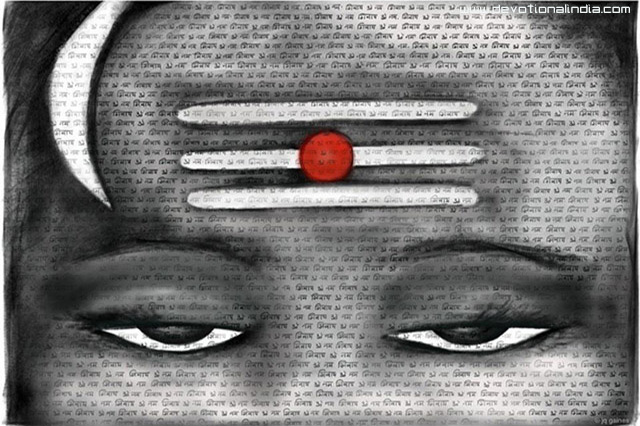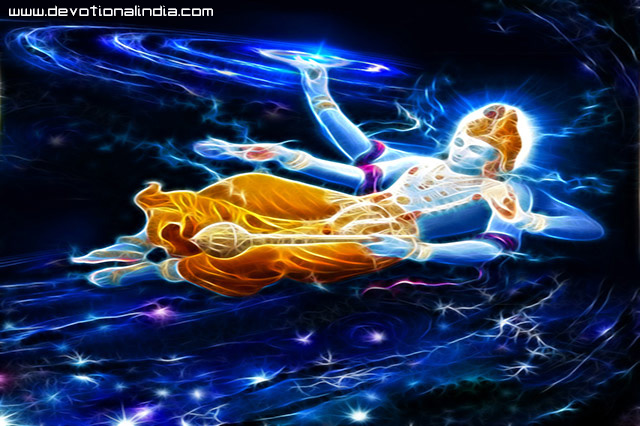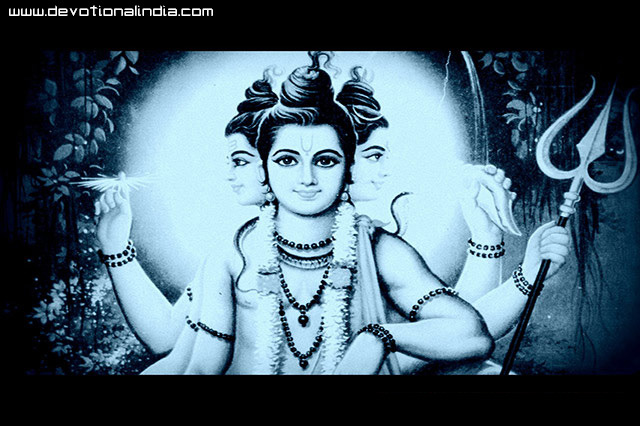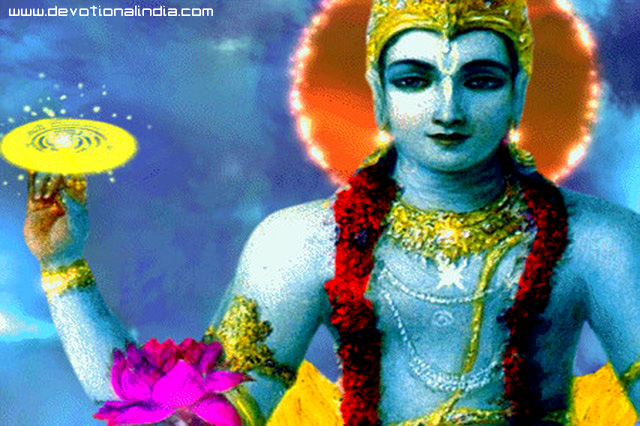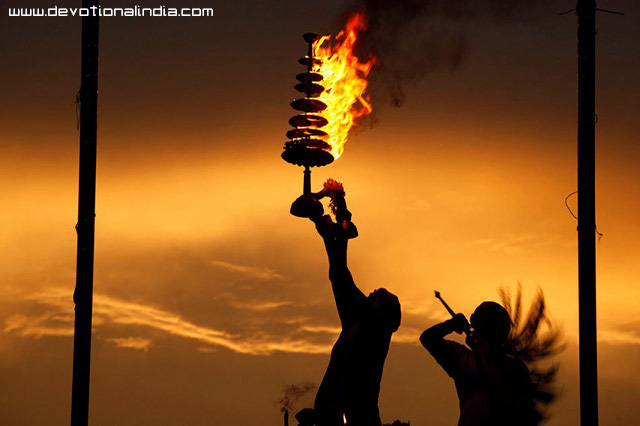
The great poet-saint Jayadeva sings at the beginning of his immortal poem Gita Govinda - the Song Celestial – “Vedan uddharathe Jagannivahathe Bhoogolamudhvibhrathe” (Sanskrit) – ‘The Avatar revives the Vedas and redeems the world.’
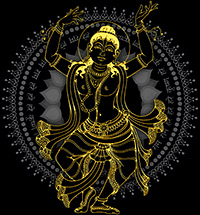 Veda is the name for a mass of divine knowledge. Veda teaches the Truth that cannot be revised or reversed by the passage of time through the three stages - past,
present and future. The Veda ensures welfare and happiness for the three worlds. It confers peace and security on human society. The Veda is the collation of Words
that are Truth, which were visualised by sages who had attained the capacity to receive them into their enlightened awareness. In reality, the Word is the very Breath
of God, the Supreme Person. The unique importance of the Veda rests on this fact.
Veda is the name for a mass of divine knowledge. Veda teaches the Truth that cannot be revised or reversed by the passage of time through the three stages - past,
present and future. The Veda ensures welfare and happiness for the three worlds. It confers peace and security on human society. The Veda is the collation of Words
that are Truth, which were visualised by sages who had attained the capacity to receive them into their enlightened awareness. In reality, the Word is the very Breath
of God, the Supreme Person. The unique importance of the Veda rests on this fact.
"Anantho vai Vedaah." The Vedas are infinite.
The Sanskrit word veda is derived from the root vid, which means to know. From vid comes vidyaa, which means a work that imparts knowledge. Therefore, veda means knowledge. Vedas are a storehouse of knowledge – both worldly and spiritual knowledge.
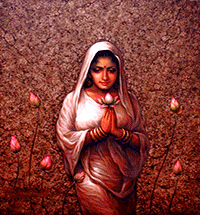 The Veda is the Mother of all the Sastras. The Veda emanated from God Himself as inhalation and exhalation. The great sages, who were the embodiments of the treasure
gained by long ascetic practices, received Veda as a series of sounds and spread it over the world by word of mouth from preceptor to pupil.
Vedas are the words of God. The word “Veda” means knowledge. They were revealed by God to the sages ("Rishis") of past. The sages taught their disciples who in turn
taught them to their disciples. Thus through an unbroken chain of succession of teachers and disciples, this body of knowledge is available to mankind today in the
very same form that it was received ages ago. Since this body of knowledge was “heard” from God and passed on from generation to generation through an oral tradition,
Vedas are also called "Shruti" or that which is heard. Vedas do not have a human author. God is its only source.
The Veda is the Mother of all the Sastras. The Veda emanated from God Himself as inhalation and exhalation. The great sages, who were the embodiments of the treasure
gained by long ascetic practices, received Veda as a series of sounds and spread it over the world by word of mouth from preceptor to pupil.
Vedas are the words of God. The word “Veda” means knowledge. They were revealed by God to the sages ("Rishis") of past. The sages taught their disciples who in turn
taught them to their disciples. Thus through an unbroken chain of succession of teachers and disciples, this body of knowledge is available to mankind today in the
very same form that it was received ages ago. Since this body of knowledge was “heard” from God and passed on from generation to generation through an oral tradition,
Vedas are also called "Shruti" or that which is heard. Vedas do not have a human author. God is its only source.
Vyasa, who was a partial manifestation of Narayana (God, Vishnu) Himself. He was the son of Sage Paraasara. He had mastered the scriptures and spiritual treatises. He
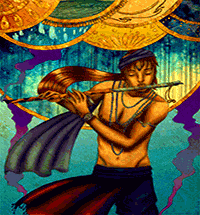 was a great sage himself. He was a skilful coordinator. In order to promote the welfare of mankind, he compiled the Veda in four parts and facilitated righteous living
by all. He divided the Vedas into four and prepared five samhithas.
was a great sage himself. He was a skilful coordinator. In order to promote the welfare of mankind, he compiled the Veda in four parts and facilitated righteous living
by all. He divided the Vedas into four and prepared five samhithas.
The Vedas are the gift of God for the welfare of the entire humanity. The Vedas make no distinction whatsoever on the basis of religion, caste, nationality, etc. The Vedic mantras can be chanted by one and all.
The rks or hymns of praise in the Veda were therefore separated from the rest and grouped under the title. Rk-Samhitha; the Yajussamhitha; The Saama verses (capable of musical rendering) were grouped under the title Saama-samhitha and the Artharva manthras (formulae and spells) were collected under the title Atharva-samhitha.
The Veda is known as Chhandas also. This name means pleasant, joyous; it is also associated with the kindred meanings - strong, vital, shielded. Since all the
attributes and characteristics can be predicated of the Vedas, the name referred to above is very appropriate. The sacred ceremonies and rituals which the Vedas
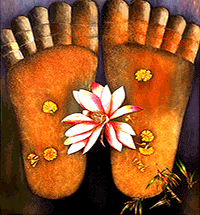 expound confer joy not only on the participants but on the entire world and even on worlds beyond. The Supreme Lord who is the source of Bliss, is known in the
scriptural text as Yajnaanga (having the Vedic ritual as His Limbs), Yajna-vahana (using the Vedic ritual as His Vehicle). When Godhead assumes Form the first
manifestation is Hiranyagarbha (the Golden Womb). This too is embodied Bliss, having as vehicle the Bird with wings of Beauty, or Garuda. The Supreme Lord is also
known as Vrsha-ratha, He whose chariot is the Bull, the symbol of Dharma (Righteousness). This is the reason why in temples we find the bird Garuda carved or kept as
an idol before the shrine of Vishnu and the figure of the Bull or its idol placed before shrines of Siva.
expound confer joy not only on the participants but on the entire world and even on worlds beyond. The Supreme Lord who is the source of Bliss, is known in the
scriptural text as Yajnaanga (having the Vedic ritual as His Limbs), Yajna-vahana (using the Vedic ritual as His Vehicle). When Godhead assumes Form the first
manifestation is Hiranyagarbha (the Golden Womb). This too is embodied Bliss, having as vehicle the Bird with wings of Beauty, or Garuda. The Supreme Lord is also
known as Vrsha-ratha, He whose chariot is the Bull, the symbol of Dharma (Righteousness). This is the reason why in temples we find the bird Garuda carved or kept as
an idol before the shrine of Vishnu and the figure of the Bull or its idol placed before shrines of Siva.
Besides, the spiritual wisdom of India is today a triumphant Beacon, shining in One resplendent flame in the thickening darkness, illumining all lands, encompassing all races and enchanting all mankind.
There is no fortune more splendid than being born on this sacred land, Bharath, repository of this magnificent and beneficent culture, which can save the world. Becoming aware of this blessing is, indeed, a spring of immeasurable Ananda.
